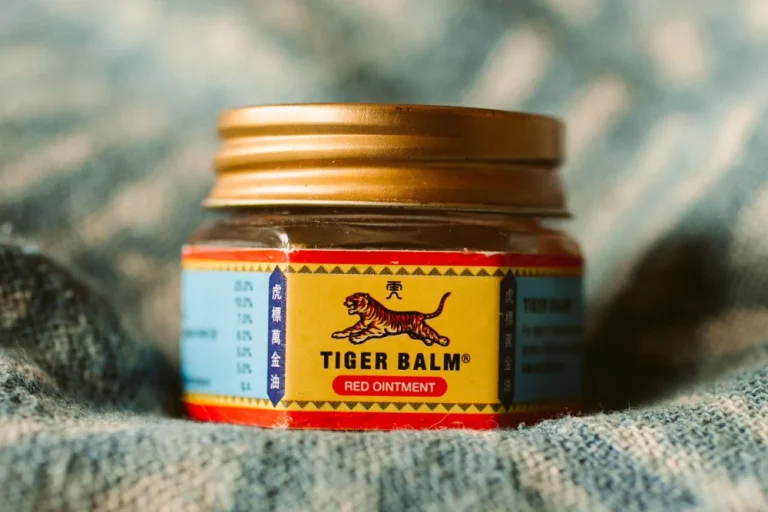Tiger Balm Faces Tariff Turmoil as U.S.-China Trade Tensions Mount
Tiger Balm, the iconic mentholated ointment favored by athletes and arthritis sufferers alike, is caught in the crossfire of escalating U.S.-China trade tensions. With only one American distributor and a single manufacturing plant in China, the product is especially vulnerable to the ongoing tariff war.
In the U.S., a 0.63-ounce jar of the distinctive amber balm typically retails for about $8. But that price could soon climb. Prince of Peace Enterprises, the sole U.S. distributor based in Livermore, California, is bracing for a surge in costs as President Donald Trump’s latest round of tariffs pushes rates on Chinese goods up to 145%.
Matt Chin, president of Prince of Peace, estimates that tariffs on Tiger Balm products could cost the company between $3 million and $5 million this year. While those costs haven’t yet been passed on to consumers, the pressure is building.
“We’re taking a measured approach,” Chin said. “Our customers depend on us, and we’re doing everything we can to avoid raising prices—for now.”
Tiger Balm is owned by Haw Par Corporation, a pharmaceutical firm headquartered in Singapore. However, the balm sold in the U.S. is produced in China, where Prince of Peace sources over $30 million worth of product annually. Haw Par declined to comment on the current situation.
The broader U.S.-China trade war is taking a toll on American companies that import specialized global products with few or no domestic alternatives. Developed in the late 1800s and known for its signature blend of camphor and menthol, Tiger Balm is used worldwide to relieve muscle pain, colds, and headaches. Its international appeal has been boosted by celebrity fans like NBA star Jeremy Lin and pop icon Lady Gaga.
Trump’s aggressive tariff policy—unleashed last month in a sweeping move targeting 90 countries—sent shockwaves through global markets. Although a 90-day reprieve was granted for most nations, Chinese imports are now facing a steep 125% tariff, up from a 10% base rate. China responded with its own tariff hikes on American goods, raising rates from 84% to 125%.
Currently, pharmaceutical imports like Tiger Balm face a 20% tariff and are exempt from the newest round of reciprocal duties. But Trump has signaled that “major tariffs” on such products are likely on the way.
Prince of Peace distributes Tiger Balm to national chains including CVS and Walmart, as well as independent pharmacies. So far, demand has held steady thanks to the company’s decision to absorb the rising costs. But according to Chin, large retailers like Walmart typically require 90 days’ notice for price changes. That means the distributor could be stuck shouldering the cost increases if those timelines can’t be adjusted.
“If Walmart won’t accommodate an exception due to tariffs, we’d have to eat the difference,” Chin explained.
Beyond Tiger Balm, Prince of Peace also imports hundreds of other Chinese products—such as herbal teas, ginseng, and health supplements—many of which lack domestic alternatives. These goods are equally exposed to the fallout from the tariff dispute.
Research from the American Action Forum, a center-right economic think tank, shows that most tariff costs are ultimately borne by U.S. businesses and consumers. New tariffs on Chinese goods now cover about 13% of total U.S. imports, potentially costing consumers up to $25 billion annually. A similar tariff wave in 2018 led to an estimated $7.2 billion loss in real income.
Yan Liang, an economics professor at Willamette University, said products like Tiger Balm and ginseng don’t compete with U.S. manufacturing jobs—instead, they support the service economy. “These small Chinese American distributors are under pressure,” Liang said. “They either absorb the cost or risk pricing themselves out of the market.”
Chin also heads the Oriental Food Association, representing more than 40 Asian food importers and distributors in Northern California. The group has been in discussions with U.S. trade officials and the Chinese consulate in San Francisco, seeking clarity on the evolving tariff landscape.
He added that smaller herbal shops and traditional medicine sellers in Chinatowns across the country are especially vulnerable, given their tighter margins.
Still, Chin remains hopeful. “It’s definitely a blow to morale,” he said. “But we’re resilient. We survived the 2018 tariffs, and we’ll get through this together.”

